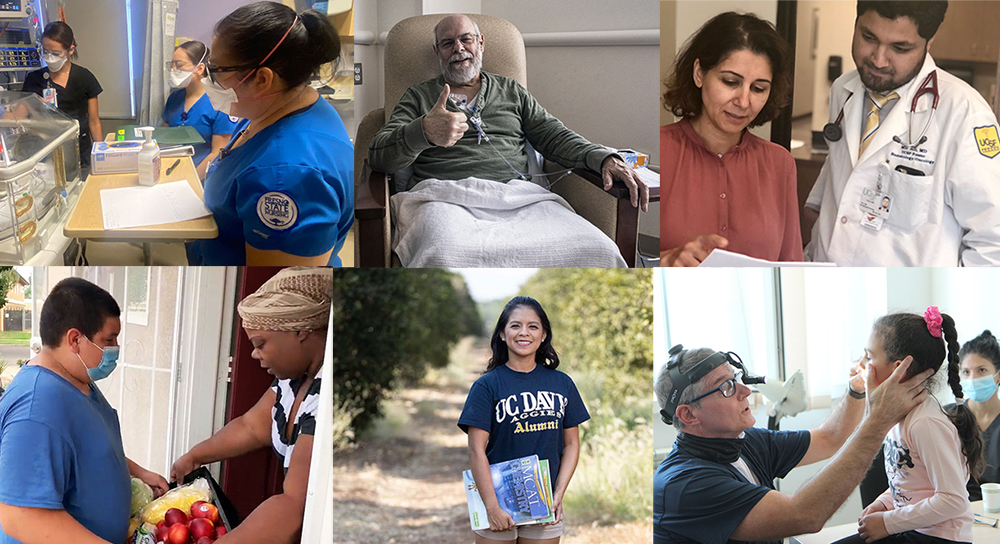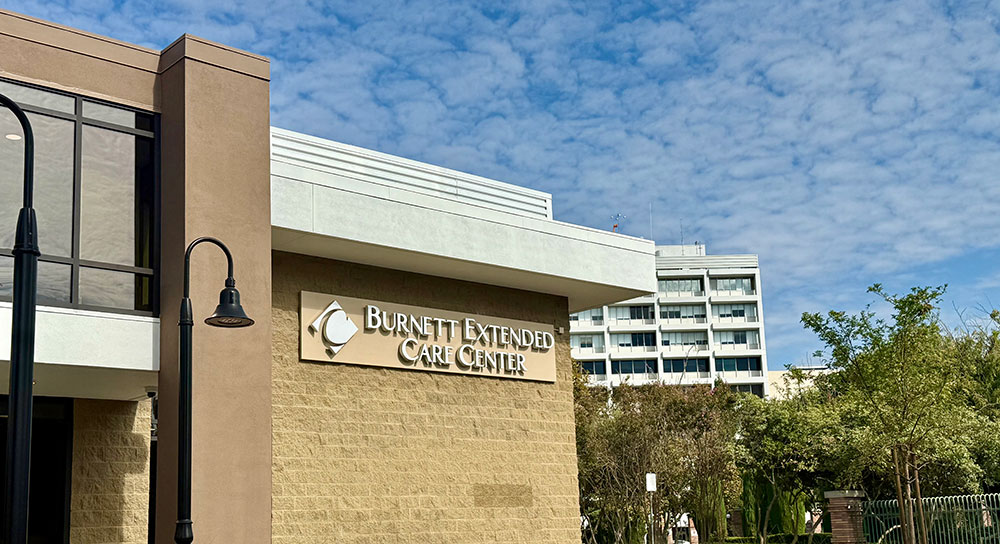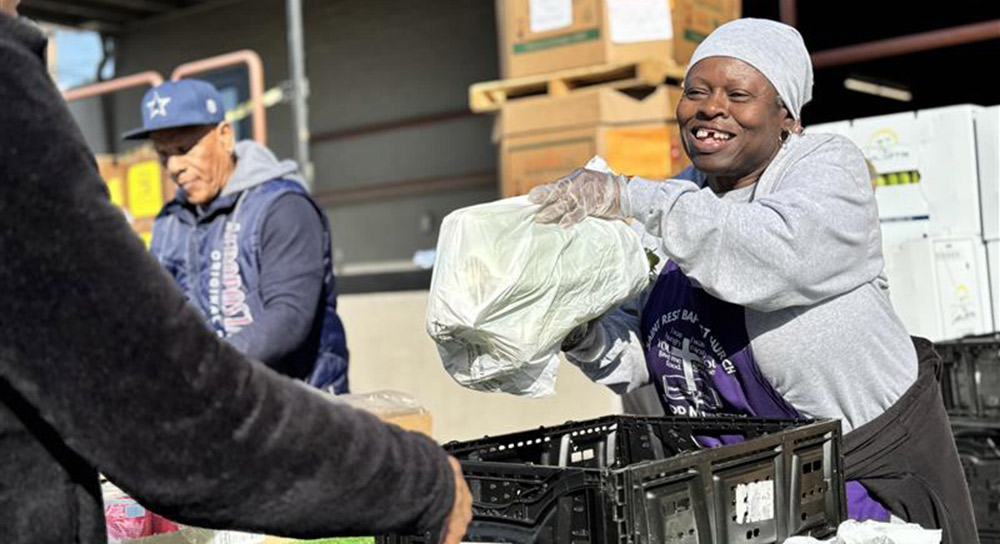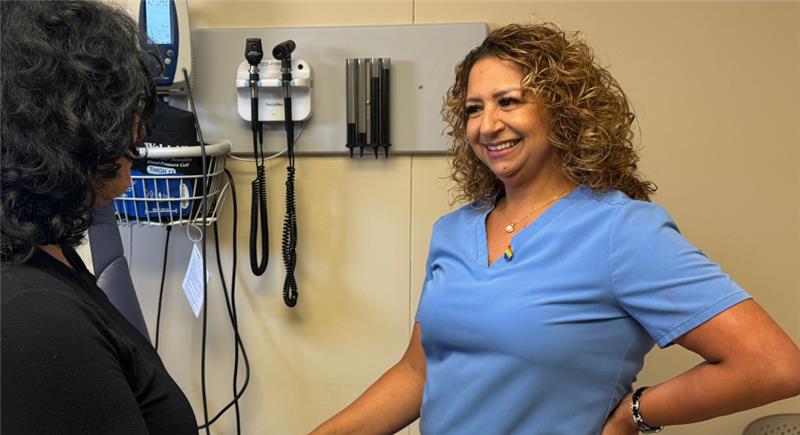Community Health System’s mission to create a healthier community for all takes more than just medical care. Last year, Community Health System provided $231 million in uncompensated care, medical education, outreach and patient support services in the Valley — about 12% of the hospital system’s operating expenses. The details on how we create a healthier community for all are published annually in our Community Benefit Report.
In this three-part series, we explore how Community partners with others to help feed the hungry, provide Spanish-speaking diabetes educators, promote the need for COVID-19 vaccinations, support mental healthcare in our community and train healthcare professionals for the Valley.
Josh Houston was a pastor who longed to leave his administrative duties behind to focus on soul care. Lorena Villa had six years of hospital experience as a Spanish interpreter but wanted to offer more meaningful support to patients and their families.
As part of Community Health System’s chaplain residency program, they’re helping each other learn how to minister to patients’ emotional and spiritual needs during a pandemic.
“Being in the hospital during COVID, there’s been a heightened sense of loneliness and spiritual longing from the patients,” Houston said about his training during 2020 in the region’s first chaplain residency program. “But I think, what a perfect time to learn and train into this skill set.”
Villa agreed: “It is a big change with COVID. A lot of patients feel isolated. They feel anxious without their families. They really want to talk to somebody and be with somebody who is going to listen.”
Funding spiritual training and resiliency
Chaplains are an integral part of the patient care team. The Joint Commission, which accredits hospitals, requires healthcare providers to accommodate patients’ religious and spiritual needs and requires healthcare organizations to provide support for staff involved in adverse events. Chaplains fill that role — and numerous studies show hospital patients with access to chaplains report less pain and recover faster.
More than ever, hospitals need chaplains to not only sit with lonely, anxious patients but also support frontline clinical staff who have faced unprecedented stress these past two years during the pandemic.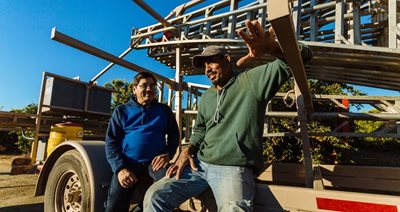
As part of its community benefit investments, Community also funded chaplaincy training through the Clinical Pastoral Education of Central California, which provided spiritual and resiliency support to 500 farm labor support staff and nearly 3,500 temporary migrant laborers employed under H-2A visas.
Temporary agricultural workers are often in socially and geographically isolated situations. One in four seasonal farmworkers experiences a serious mental health episode and they are twice as likely as the general population to experience anxiety, depression and alcohol abuse. Community targets its community benefit investments to address these pressing needs.
Setting our sights on the future
Community benefit investments are based on a tri-annual Community Health Needs Assessment done jointly among more than a dozen hospitals and health partners in Fresno, Kings, Madera and Tulare counties and facilitated by the Hospital Council of Northern & Central California.
Those investments reach into many corners of our community. Information gathering is in progress for our priorities for the next three years and involves community members, leaders and key stakeholders representing low-income and vulnerable populations sharing their experiences in focus groups, one-on-one interviews and an online survey. Primary data is coupled with federal, state and local health status information to identify the regions’ top needs.
Community targets its community benefit investments to address these pressing needs. One of the big health needs that has surfaced in the last few years and especially during the pandemic has been mental health.
Mental health help needed during pandemic
Since 2018, Community has contributed more than $200,000 to the Foundation for Clovis Schools for mental health programs aimed at Clovis Unified K-12 students and families.
Efforts to address social and emotional issues among the district’s youth are in response to incidents of suicide, suicide attempts, anxiety over racial issues and increased involuntary mental health holds among the area’s youth. Last year’s efforts included training staff in suicide intervention efforts.
Community also supported Birney Elementary School’s mental health, resiliency and reading programs with a nearly $16,000 contribution. More than 90% of students in Fresno Unified schools receive free or reduced price meals, an indication of poverty.
For more details on how Community Health System is creating a healthier community for all, please read our Community Benefit Report.
View previous article: Bringing more medical expertise, access to Valley residents



